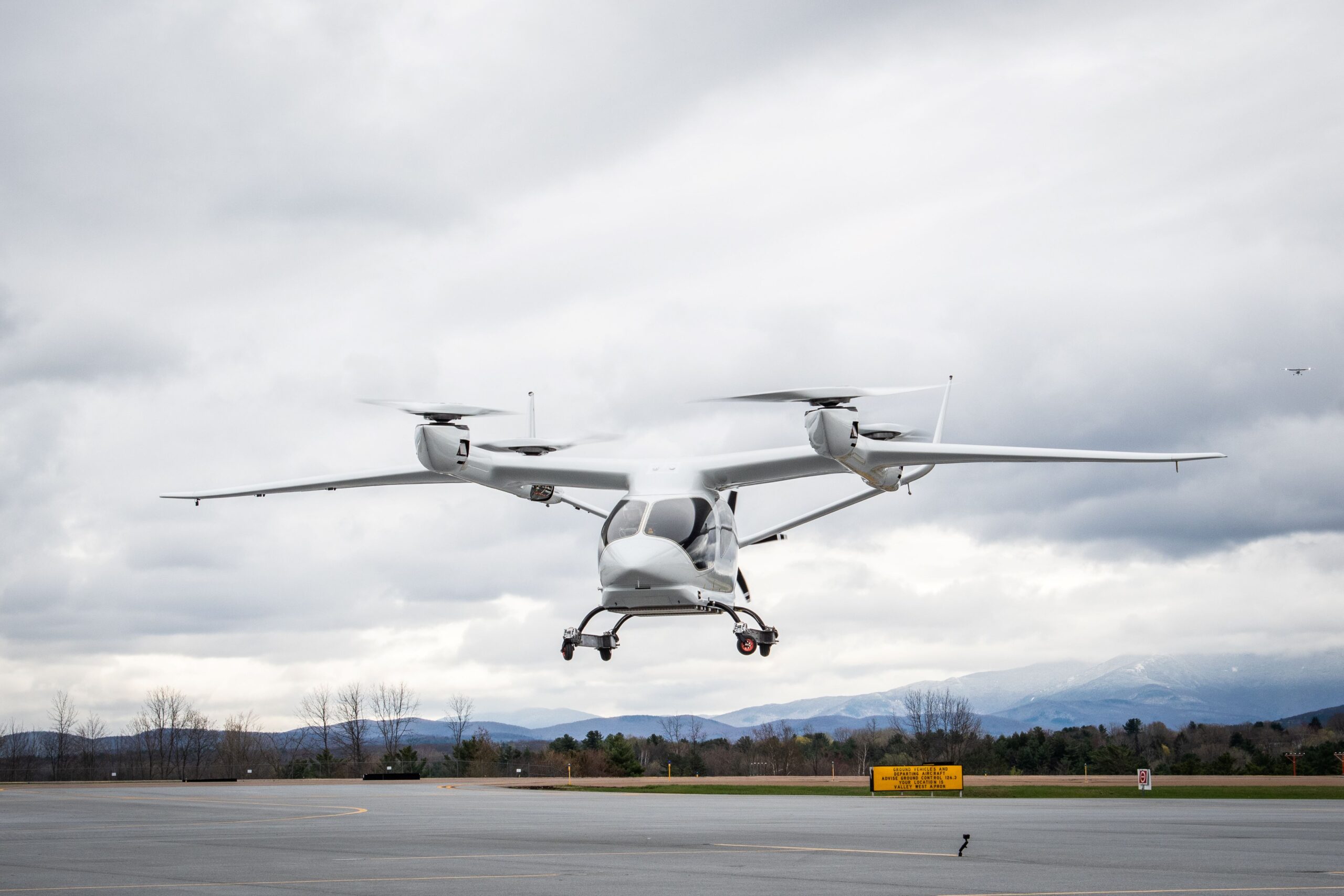Helicopter airline Helijet International has placed an order for two ALIA electric vertical takeoff and landing aircraft from BETA Technologies in hopes of becoming the first Canadian air carrier to provide both passenger and cargo services with eVTOLs.
Helijet President and Chief Executive Danny Sitnam and BETA Sales Director Skye Carapetyan made the announcement with British Columbia Premier David Eby at Helijet’s Victoria Harbour Heliport on Tuesday.
“We want to be in the forefront of this, we see the opportunities with electric and hydrogen-powered vehicles in the near future,” Sitnam said during the announcement. “As travelers increasingly look to destinations and transportation options that reflect their own commitments to environmental responsibility, we believe eVTOL service in the region will positively benefit local businesses our tourism sector.”

Helijet will integrate the BETA-designed aircraft into its existing network of helicopter services, to provide quieter, lower-cost, more sustainable air transportation for travelers in southwestern British Columbia and the Pacific Northwest, Sitnam said.
The electric aircraft’s vertical take-off and landing capability will enhance Helijet’s emergency response, air ambulance and organ transfer services in the Lower Mainland of British Columbia, and support rural and remote communities that do not have access to affordable and convenient air services, he said
“Our partnership with [BETA] is a reflection of our commitment to introducing and integrating zero-emission, vertical lift technologies and related ground-building infrastructure in the communities we serve,” Sitnam said. “That will include transforming our current heliport infrastructure to meet future urban mobility for deploying infrastructure and needs by any measure.”
ALIA is a five-passenger-plus-pilot configured eVTOL aircraft currently in advanced flight standards development towards commercial regulatory certification in 2026, BEAT said. BETA intends to certify ALIA for instrument flight rules (IFR) operations. It should be available for private and commercial service shortly thereafter, the company said.
Vermont-based BETA has conducted qualitative evaluation flights with the FAA, U.S. Air Force, and U.S. Army, completed multiple thousand-mile-plus missions across the U.S., using its own charging infrastructure and recently opened its 188,500-square-foot production and assembly facility, the first full-scale manufacturing facility for electric aircraft in the United States, the company said. Earlier this fall, the electric aerospace company also flew one of its prototype aircraft across the border into Montreal, marking the first time a battery-electric aircraft has landed in the city.

“We designed ALIA to be a reliable, efficient, and sustainable aircraft option that could carry out a variety of missions in all types of geographies, and we’re thrilled to be partnering with Helijet to bring this next-generation, net-zero technology to Canadian commuters and travelers,” said Kyle Clark, BETA’s founder and chief executive. “Between our growing engineering hub in Montreal, our first cross-border flight to the region earlier this year, and the support we’ve received from the government and regulators across Canada, we look forward to continuing to grow our presence in the country. To be able to do that in partnership with the foremost operator in British Columbia is very exciting.”
Helijet considered several eVTOL aircraft over the past two years and “shortlisted” three, though it did not say which ones. The company will continue to consider other shortlisted aircraft make and models for order aside from BETA.
“We are proud to partner with BETA Technologies, who are leaders in the advanced air mobility space,” said Sitnam. “We are committed to introducing and integrating zero-emission, vertical lift technologies and related ground/building infrastructure in the communities we serve and look forward to transforming our current heliport infrastructure to meet future urban air mobility vertiport standards.”